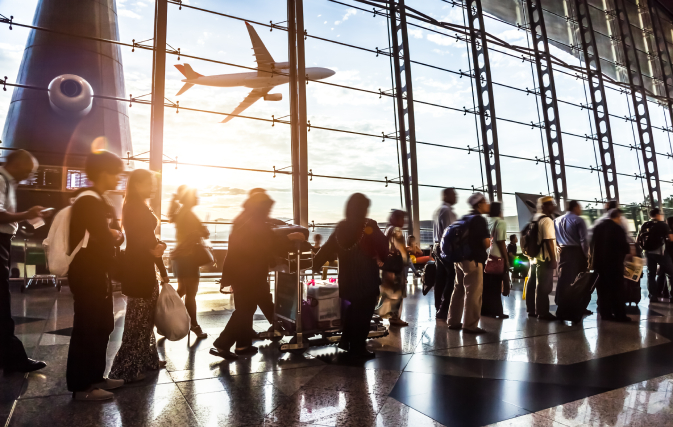GENEVA — Global passenger traffic results were up in May but are still below the 20-year average growth rate, reports IATA.
May traffic rose 4.5% compared to the same month in 2018, which was in line with the revised April traffic growth of 4.4% and above the recent trough of 3.1% year-on-year growth recorded in March. However, it remains below the 20-year average growth rate of around 5.5%.
“Passenger demand growth has slowed compared to the past two years. This is in line with slumping global trade, rising trade tensions and weakening business confidence. In this challenging environment, airlines are managing capacity carefully in order to optimize efficiency,” said Alexandre de Juniac, IATA’s Director General and CEO.
International traffic demand rose 4.3% in May over the year-ago period, which was down 5.1% growth in April. All regions recorded growth, led by airlines in Latin America. Total capacity climbed 2.1%, with load factor jumping 1.7 percentage points to 80.4%.
North American airlines’ traffic rose 4.8% in May compared to May 2018, a slowdown from 5.6% annual growth in April. Capacity climbed 2.7% and load factor strengthened 1.7 percentage points to 83.6%. The comparatively strong U.S. domestic economy and U.S. dollar is helping to offset any trade-related softening in international travel, says IATA.
De Juniac stressed the importance of open borders to the overall health of the airline industry.
“Aviation is the business of freedom, connecting people and trade and creating new opportunities for growth and development. But to be effective, the business of freedom relies on borders that are open to the movement of people and goods—and aircraft,” he said. “In recent weeks, we have seen extensive airspace closures owing to political tensions. These closures have contributed to longer and less efficient routings, higher operating costs and increased carbon emissions. Without any compromise on safety, it is vital that governments work to minimize airspace closures so that the Business of Freedom can continue to deliver its benefits as efficiently as possible.”

